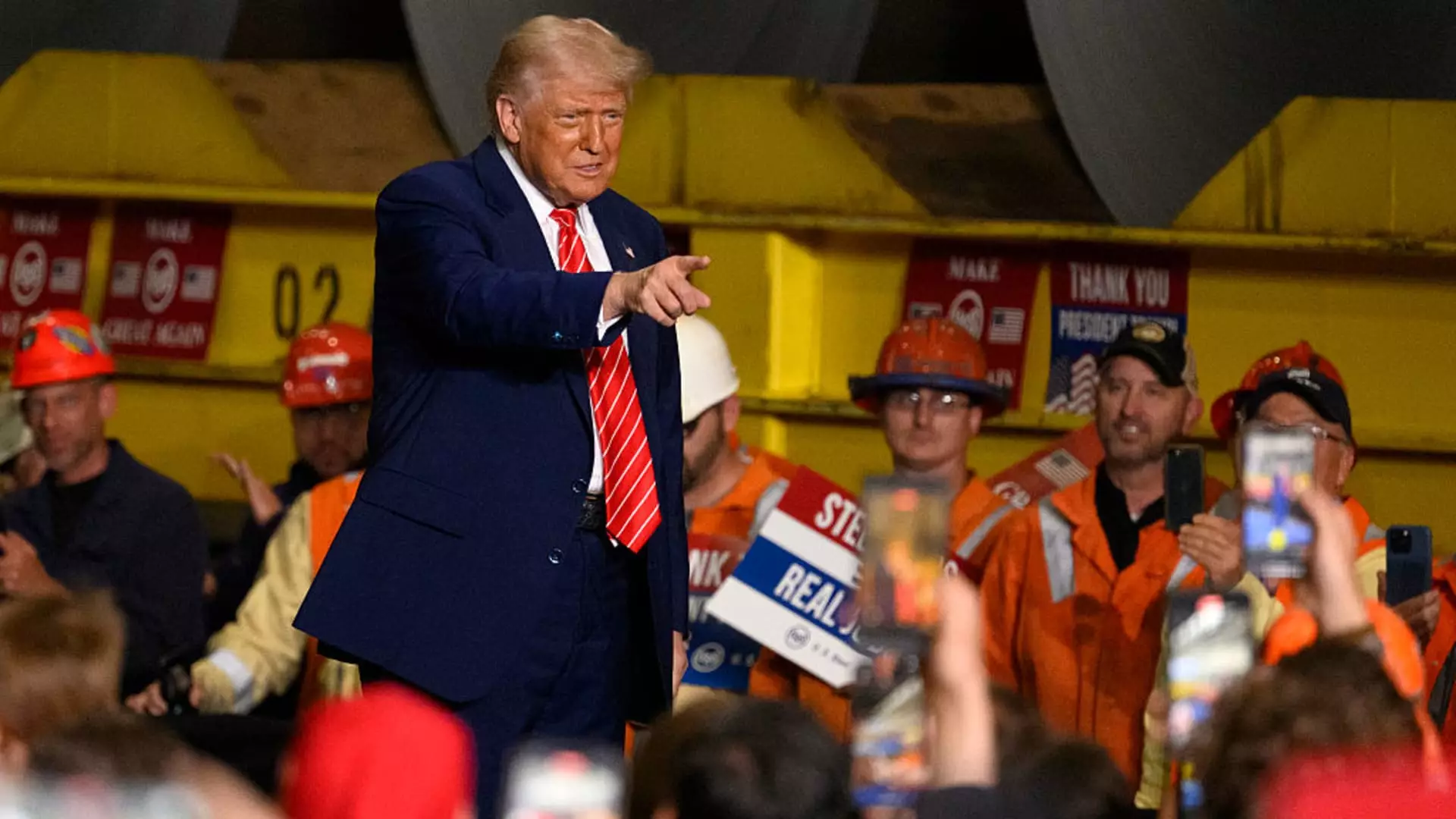Donald Trump’s administration has become synonymous with dramatic, often disruptive decisions that echo throughout global markets. His recent move to elevate steel tariffs from 25% to a staggering 50% adds another log to the already raging bonfire of international trade tensions. This heavy-handed approach not only undermines ongoing negotiations but also risks escalating the very trade war that is already gnawing at the fabric of global economics. By doubling the tariffs, Trump likely sees himself as a champion of American steelworkers, but this misguided play reveals a troubling disregard for the broader implications that ripple well beyond U.S. borders.
Impact on Transatlantic Relations
The European Union’s stern criticism of Trump’s announcement is not just a routine diplomatic response. Rather, it highlights a palpable concern for the future of transatlantic trade relations. An EU representative underscored that this latest tariff hike “undermines efforts to reach a negotiated solution,” revealing the fractures that run deep in international diplomacy. When the world’s largest economic bloc prepares for countermeasures, one must wonder if the Trump administration truly understands the precarious nature of global interdependence. The cost of steel is not confined to the industry alone. Higher tariffs exacerbate costs for consumers and businesses alike, illustrating how one poorly conceived decision can become a contagion.
The Human Cost of Tariffs
It’s not merely about numbers on a balance sheet; this is about people—thousands of Canadian workers directly threatened by these tariffs. The United Steelworkers union (USW) has deemed the tariff increase a “direct attack,” illustrating the unsympathetic reality where blue-collar workers shoulder the burden of political posturing. Marty Warren, the union’s National Director for Canada, did not mince words: “Canada needs to respond immediately and decisively to defend workers.” Here lies the crux of the issue: policies like these neglect the underlying social fabric that holds communities together. Further complicating matters is the humanitarian angle, where lives and livelihoods are placed at the mercy of variable international politics.
The Irony of Domestic Jobs at Stake
One might assume that a move like this is purely geared towards protecting American jobs. However, this assertion falters when one considers the prevailing winds of market economics. By imposing overwhelming tariffs, Trump risks alienating the manufacturers who depend on affordable steel imports. Many industries, from automotive to construction, occupy a tenuous balance predicated on reasonable costs for materials. When you elevate tariffs, you effectively squeeze the lifeblood from domestic companies that are struggling to maintain their workforce. The irony is staggering: an initiative aimed at bolstering job security may instead incite layoffs and increased prices for everyday consumers.
The Judicial Snag: A Blow to Tariff Authority
The complications stemming from this tariff increase grew even more convoluted earlier this week when the U.S. Court of International Trade intervened, halting most of Trump’s tariffs on the grounds that they exceeded his authority. Although the appeals court’s swift pause maintains a thin veneer of stability, it serves as a reminder of the precariousness of Trump’s trade strategy. The uncertainty created by legal battles further muddles the already foggy future of American trade policy. If the ultimate goal is to exert leverage over other nations, one has to ask: Are we witnessing a strategy or a series of impulsive decisions that jeopardize U.S. credibility?
While the narrative often spins around personal ambition and political theatrics, the essence of trade policy should ideally pivot on rationality and mutual beneficence. America’s status as a global economic power isn’t merely wrapped up in its ability to impose tariffs; it’s built on negotiation, diplomacy, and cooperative growth. In pursuing a path fraught with unilateral decisions, Trump risks alienating allies and fragmenting trade arrangements that have historically benefited the U.S. and the wider world. The stakes have never been higher, and it is incumbent upon all of us to advocate for sound economic policies that uplift rather than divide.


Leave a Reply